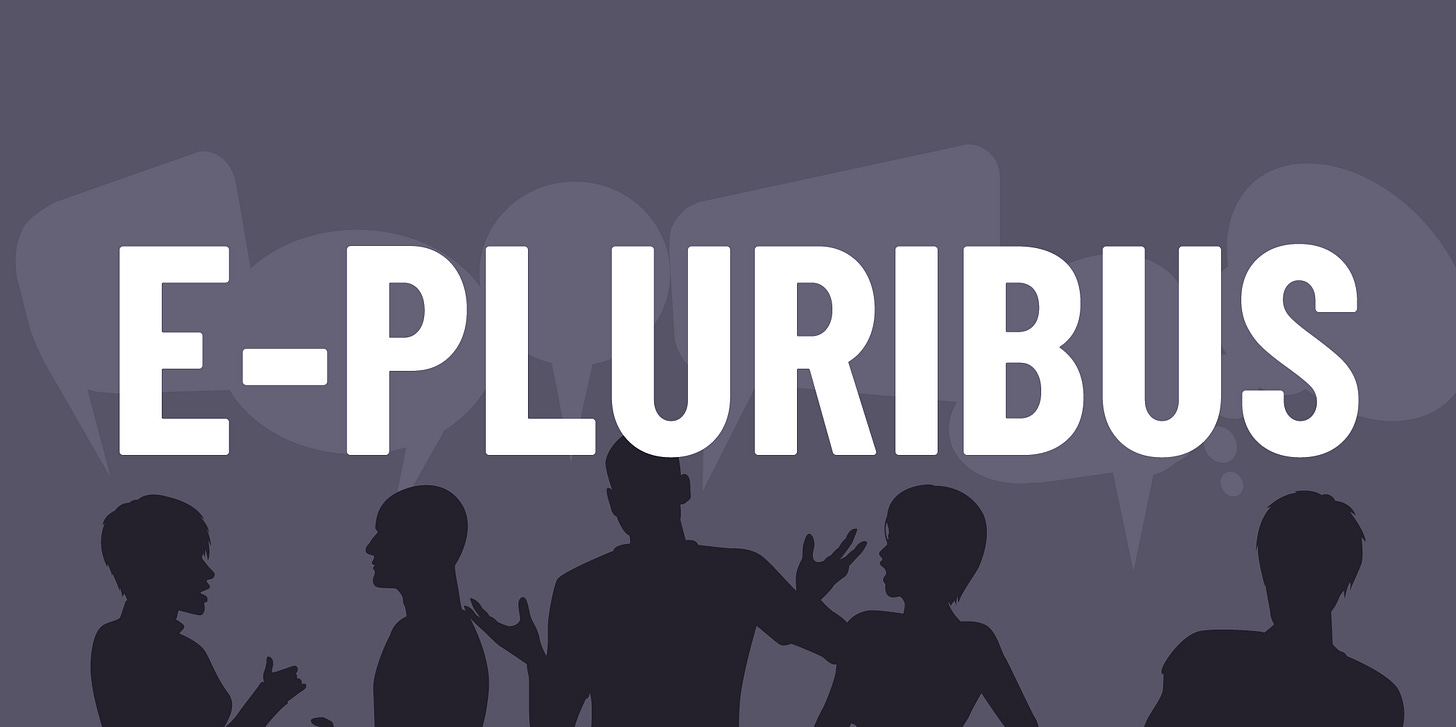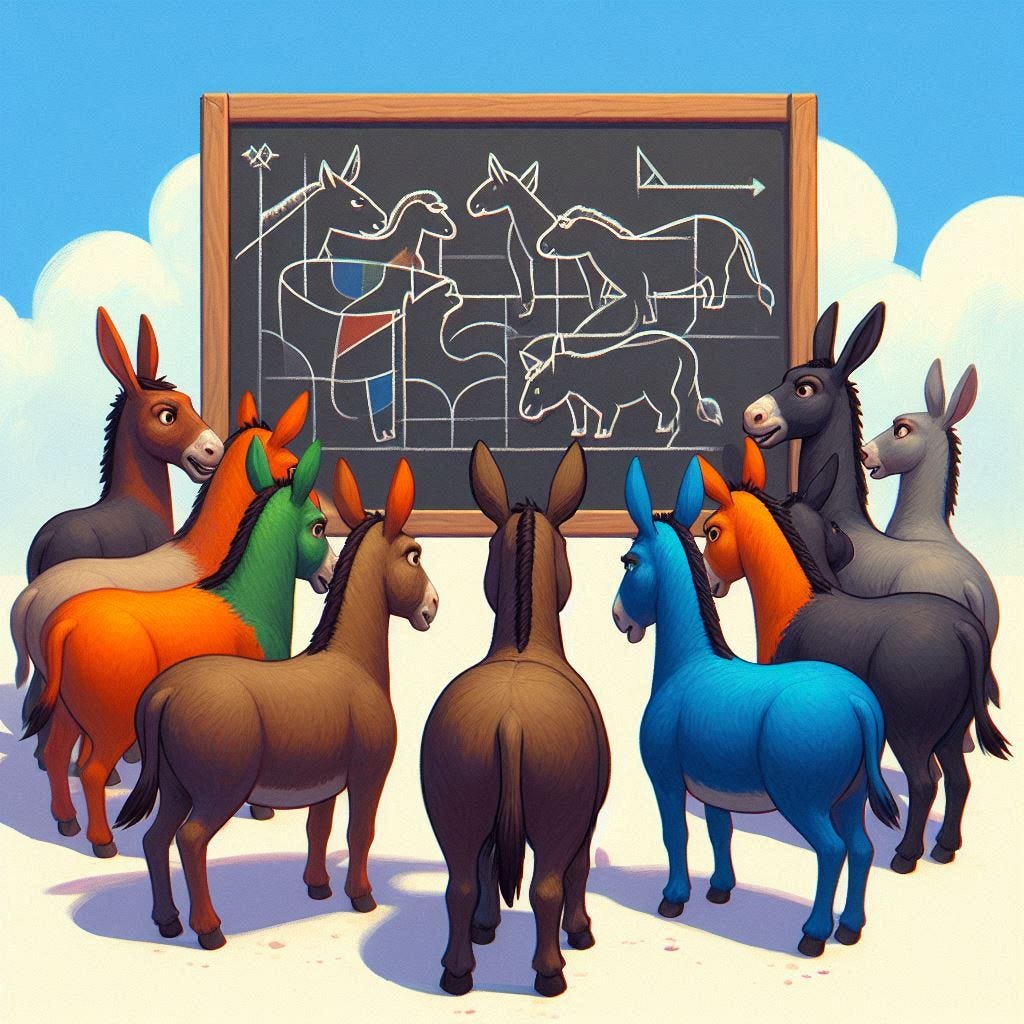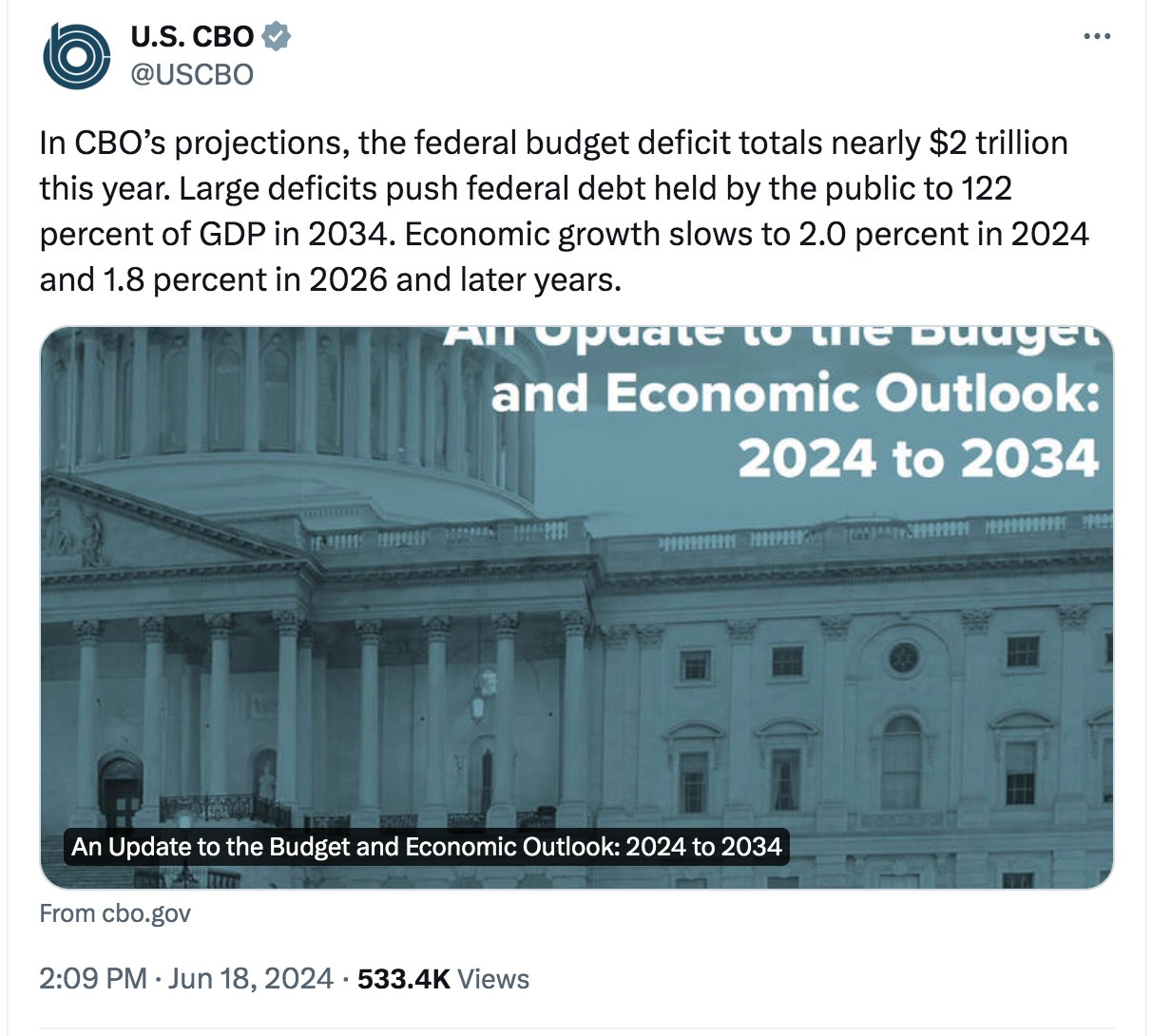E-Pluribus | June 20, 2024
The separation of press and state; the downside of "diversity" for Democrats; and three cheers for Juneteenth.
A round-up of the latest and best musings on the rise of illiberalism in the public discourse:
Jonathan Kay: Journalists Shouldn’t Depend on the State for Their Wages
While Canada’s press freedoms are not as robust as America’s First Amendment protections, Jonathan Kay warns that the cozy (and getting cozier) relationship between the Canadian government and the media is cause for concern. “Follow the money” is as true as it was in the 1970s, but when the money is passing from government to the press, the incentive to hold the financier accountable is clearly impacted.
As reported by Michael Geist of the University of Ottawa, “Qualified Canadian Journalism Organizations” (as that term is defined by the government) can now claim 35 percent of their journalists’ salaries as tax credits—up to a salary limit of $85,000 per employee. Put another way, $29,750 of the annual gross pay earned by senior Canadian journalists—including the ones seeking to put microphones in front of opposition politicians such as Mr. Poilievre—is now effectively provided by the federal government.
And if you’re wondering how the government came up with that figure, there’s a simple answer: It corresponds exactly to what Canada’s newspaper lobby group, News Media Canada, asked for in 2023.
Indeed, Mr Trudeau’s government has exceeded the demands of corporate lobbyists. According to calculations supplied by Rudyard Griffiths—executive director of The Hub, an (unsubsidised) Canadian news and opinion site—additional contributions made under the auspices of Canada’s recent agreement with Google have brought the real annual figure to about $40,000 for every $85,000/year journalist—almost half of his or her salary.
As Prof. Geist writes, all of this “raises enormous concerns about the independence of Canadian media. While the government claims this is being done to ensure a ‘strong and independent’ press, it is not hard to see how the opposite may be true.”
None of this is to suggest that the Globe & Mail, or any other “Qualified Canadian Journalism Organization,” is consistently tailoring its content in a bid to curry favour with government officials. Indeed, that newspaper’s Ottawa bureau chief, Robert Fife, has repeatedly broken stories that embarrassed Mr Trudeau’s governing Liberals. Moreover, the same cash pool that funds the Globe & Mail also provides funding to conservative-leaning outlets such as the National Post, which often publishes scathing columns about the Prime Minister.
But the fact remains that since 2019, many Canadian journalists—including those who regularly cover the country’s federal government—have come to owe their livelihood to the politicians they write about. We know this because newspaper owners themselves have, for years, been forthright in declaring that their continued corporate operations now depend on generous public bailouts.
From an ethical point of view, this is obviously a troubling arrangement, as it creates a clear conflict of interest for journalists, especially with a federal election on the horizon. Polls suggest Mr Poilievre has a good chance of becoming prime minister sometime between now and Fall 2025. And if elected, it is fair to expect, he will revisit many of the Liberals’ pet funding programs—including this one.
To put things less delicately: the future paid employment of many Parliament Hill reporters may well depend on whether the Liberals manage to claw their way back in the polls, which, in turn, depends on what sort of treatment Mr Trudeau and his fellow Liberals get in the press.
Read it all.
Michael Hartney, Renu Mukherjee: The Democrats’ Emerging Race Problem
Fifteen or twenty years ago, books like The Emerging Democratic Majority and Permanently Blue: How Democrats Can End the Republican Party and Rule the Next Generation had Democrats salivating over their prospects for the future. Then reality struck. Donald Trump, however, is not the only threat to Democrats. Writing for City Journal, Michael Hartney and Renu Mukherjee make the case that one of the Democrats’ most dependable weapons, race, just isn’t working quite as well as it used to.
The multi-ethnic Obama coalition once seemed unbreakable. With overwhelming support from non-white voters, demographic trends pointed to an emerging Democratic majority. But then, after the 2016 election, a surprising thing happened: the rainbow coalition began to dissolve.
Today, the Democratic Party can no longer count on unified minority support. Democrats now hold a (historically) modest 47-point advantage among black voters, the lowest Gallup has ever recorded. Among Hispanics, the advantage is just 12 points. Then there’s the nation’s fastest growing minority group: Asians. In April, Pew reported that just four in ten approved of President Biden, down from nearly six in ten in 2022.
[. . .]
[It] becomes practically impossible to hold a diverse coalition of minority groups together while embracing policies that benefit some of those groups at the expense of others.
The politics of affirmative action offer a compelling recent example of this evolution. While racial preferences have long been unpopular with conservative whites, now many Democrats and minorities are turning against them, too. In the past, battles over preferences focused on middle-class white students, whose academic qualifications were only slightly above average. Today, however, Asian students are the primary losers in affirmative-action admissions regimes. Many Asian students are low-income recent immigrants (or the children of immigrants) and have exceptional academic records. Yet, because they currently are overrepresented in higher education, they wind up getting rejected in favor of underrepresented, and less-qualified, minorities.
[. . .]
Affirmative action is just one example of the Democrats’ dilemma. The party’s progressive wing has reflexively opposed merit-based education policies when they would result in unequal outcomes among racial groups, including: selective public exam schools, early Algebra and honors coursework, and standardized tests and accountability. These progressive totems do not reflect the views of many minority voters, especially immigrant parents who see educational excellence as their children’s path to the American Dream.
Read the whole thing.
Billy Binion: Juneteenth Is a Celebration of Freedom
Yes, the calendar is already overflowing with holidays and special remembrances, but to Reason’s Billy Binion’s way of thinking, celebrating the end of slavery certainly isn’t the worst thing in the world. While nearly another century would pass before the promised freedom would truly be available to all Americans, the demise of that abhorrent institution was the first step on a long road to true liberty and justice for all.
On June 19, 1865, about two and a half months after the Civil War had ended, Maj. Gen. Gordon Granger set in motion the final enforcement of the Emancipation Proclamation—which President Abraham Lincoln had signed over two years prior—alerting slaves in Galveston, Texas, that they were no longer in bondage. Some slaves in the U.S. would remain in captivity until the Thirteenth Amendment was ratified in December 1865, and even afterward, that's not to say their newfound freedom was all that free; they would go on to face yearslong, enormous barriers to equality and liberty. Still, Juneteenth represents a page-turning from one of the most shameful chapters in American history.
That is the epitome of a cause worth celebrating, irrespective of where someone falls on the political spectrum. Yet it has not been entirely without controversy. About 43 percent of Republicans, for example, reportedly oppose its inclusion in school curricula when compared to 89 percent of Democrats, according to a YouGov poll. Though it's hard to know precisely why, it may come down, at least in part, to ever-present culture war fracturing. The GOP in some sense still fashions itself as the party of freedom. Slavery, again, is the absence of freedom. In theory, learning about the history behind Juneteenth should buttress, not detract, any platform that claims to advocate for liberty.
[. . .]
Opal Lee, the 97-year-old "grandmother of Juneteenth" who fought for the holiday's recognition, agrees it really is that simple. "It means freedom for everybody. Not just Black folk or Texas folk," she said. "Freedom for everyone." When Lee was 12 years old, a mob of hundreds arrived at her house in Fort Worth, Texas, smashing windows and furniture, angered that a black family had moved in. The day? June 19. Last week, she got the keys to her new house, built by Habitat for Humanity, on that same lot. It's a reminder that these dark periods were really not very long ago.
Read it all here.
Around Twitter (X)
Condoleezza Rice has some thoughts about school choice, via Free Black Thought. Click for video.
Matt Yglesias responds to peak pessimism:
And finally, lest we get too carried away with optimism, the Congressional Budget Office is here with this reality check:










